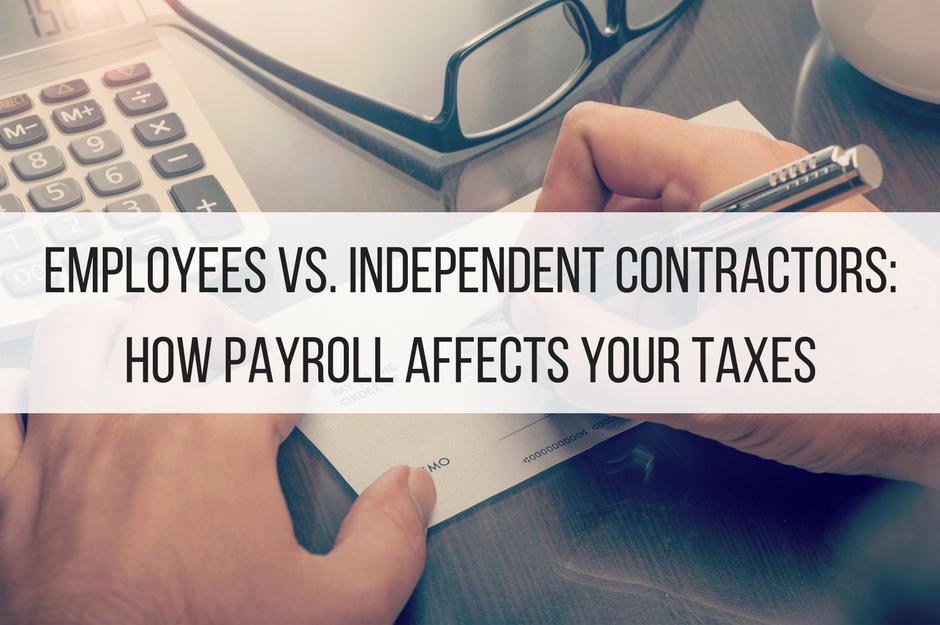
Most small business owners will need to depend on the help of others to get work done. Even if you are a one-person business at the moment, you likely have aspirations to grow. Regardless of your situation, it pays to understand how your payroll will affect your business taxes.
It may not seem like much of a difference on the surface level, but when it comes to taxes there is a very big distinction between paying someone as an employee compared to paying them as an independent contractor. In this article, we’ll explore the information that you need to know.
Why Hire Independent Contractors?
Depending on your business size and structure, it may be beneficial to hire independent contractors rather than bringing full- or part-time employees on board. The tax advantages are clear: An independent contractor does not require health benefits, worker’s compensation insurance, payroll taxes, unpaid leave or overtime.
Though it may seem like a disadvantage to not have these benefits built-in, many independent contractors prefer to retain their freedom and manage their business with some good tax advantages of their own.
The Concern of Misclassification
So, why not hire everyone as independent contractors? Well, that’s where things get tricky. The IRS and state boards take worker misclassification very seriously and the tax penalties can be steep. Ultimately, the government tax entities will determine if someone should be paid as an independent contractor or as an employee.
Here are some of the determining factors the IRS will use to make the distinction between employees and independent contractors for tax purposes. Having a better understanding of this information will help you make better payroll decisions.
- Work Control
If the business is in charge of directing all aspects of how the work is to be done (including instructions and training), then the worker is considered an employee.
- Financial and Business Operations
The worker is also considered an employee if the financial and business operations directly related to the job are controlled by the employer.
- Business/Worker Relationship
If the worker views the business owner as their boss, then they’re considered an employee. If the worker is treated as a client, then it’s an independent contractor situation.
It may seem easier and more advantageous to hire independent contractors, but it can be a little more complicated. If the worker’s role is that of an employee, they must be compensated accordingly and taxes need to be dealt with properly. If they are truly an independent contractor, then get detailed invoices and receipts for services rendered.
If you are not sure how to property classify a worker, you can use Form SS-8 provided by the IRS (Determination of Worker Status for Purposes of Federal Employment Taxes and Income Withholding). Or, contact a tax expert like the certified professionals at Ferguson, Timar & Company. We can help you make the right payroll decisions and maximize your tax returns with strategic tax planning and preparation. Contact us today.
